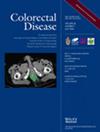Evidence suggests that earlier bowel resection may offer more stable remission in localized luminal terminal ileal (TI) Crohn's disease compared with ongoing medical therapy. Surgery is still considered late in the treatment pathway. The aim of this study was to understand the clinician's perspective on ‘early’ surgery by qualitatively exploring how clinicians make treatment-related decisions.
Semistructured interviews with clinicians across the UK with an interest in inflammatory bowel disease (IBD) were undertaken using videoconferencing (February–November 2022). Inductive thematic analysis of interview transcripts was performed; 10% of the data were double-coded. Data saturation was confirmed before stopping recruitment.
Participants included nine consultant surgeons, seven consultant gastroenterologists and seven specialist nurses (n = 23) from secondary care and tertiary referral centres. Five key themes were identified: timing of surgery in practice, barriers to timely surgery, factors influencing decision-making, offering choice and the patient's perspective. A practice of exhausting medical options before considering surgery was commonly described. A lack of IBD specialists (especially surgeons), inadequate opportunities for multidisciplinary teamwork and long waiting lists for surgical clinics and theatre were cited as barriers to timely surgery. According to interviewees, patients prefer medical therapy over surgery; the most dreaded risk is thought to be that of a stoma.
This study provides new insights into the barriers to earlier surgery for TI disease. Organizational barriers should be considered when designing local services. Collaborative multidisciplinary teamwork may allow clinicians to consider surgery sooner. A study investigating the patient perspective is warranted.



